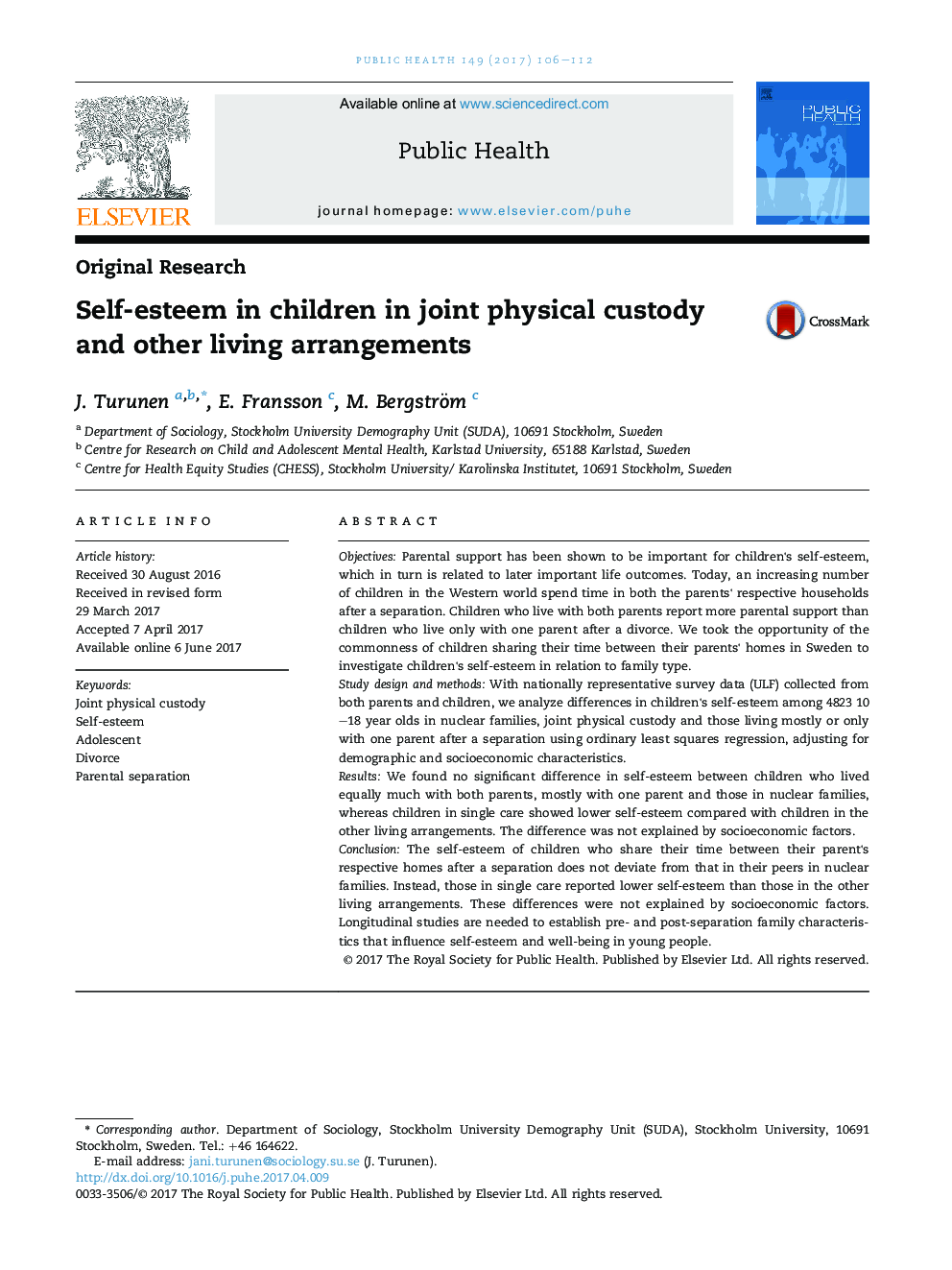| کد مقاله | کد نشریه | سال انتشار | مقاله انگلیسی | نسخه تمام متن |
|---|---|---|---|---|
| 5122875 | 1487194 | 2017 | 7 صفحه PDF | دانلود رایگان |
- Post-separation child custody arrangement is associated with children's self-esteem.
- Children in joint physical custody report higher self-esteem than in lone custody.
- Children in joint custody are on par with those in nuclear two-parent families.
- The difference was not explained by socioeconomic factors.
- Research based on high-quality data with information from children and parents.
ObjectivesParental support has been shown to be important for children's self-esteem, which in turn is related to later important life outcomes. Today, an increasing number of children in the Western world spend time in both the parents' respective households after a separation. Children who live with both parents report more parental support than children who live only with one parent after a divorce. We took the opportunity of the commonness of children sharing their time between their parents' homes in Sweden to investigate children's self-esteem in relation to family type.Study design and methodsWith nationally representative survey data (ULF) collected from both parents and children, we analyze differences in children's self-esteem among 4823 10-18 year olds in nuclear families, joint physical custody and those living mostly or only with one parent after a separation using ordinary least squares regression, adjusting for demographic and socioeconomic characteristics.ResultsWe found no significant difference in self-esteem between children who lived equally much with both parents, mostly with one parent and those in nuclear families, whereas children in single care showed lower self-esteem compared with children in the other living arrangements. The difference was not explained by socioeconomic factors.ConclusionThe self-esteem of children who share their time between their parent's respective homes after a separation does not deviate from that in their peers in nuclear families. Instead, those in single care reported lower self-esteem than those in the other living arrangements. These differences were not explained by socioeconomic factors. Longitudinal studies are needed to establish pre- and post-separation family characteristics that influence self-esteem and well-being in young people.
Journal: Public Health - Volume 149, August 2017, Pages 106-112
